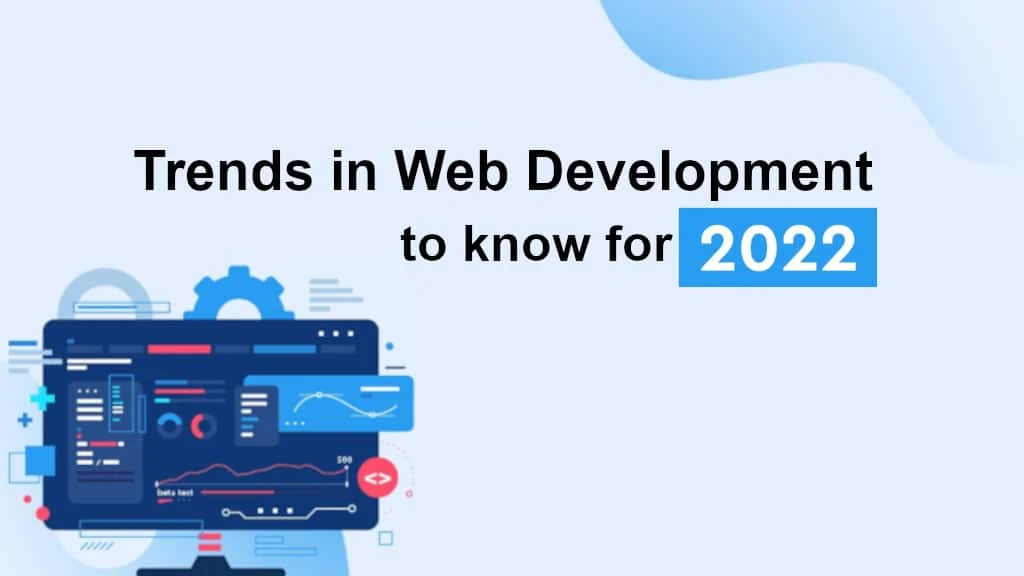7 Jaw-Dropping Trends In Web Development To Know for 2022
This post discloses the most mind-boggling web development trends every entrepreneur should be ready for in 2022.- Article authored by Kunal Chowdhury on .
This post discloses the most mind-boggling web development trends every entrepreneur should be ready for in 2022.- Article authored by Kunal Chowdhury on .
When it comes to delivering a superior web app experience, there's no substitute for innovations that differentiate your product from the contests. Read on to discover the latest web trends every CTO should consider to balm clients’ lives.

The explosive growth of IoT uses and adoption brings this technology to the list of promising web trends. IoT-enabled web apps can directly communicate with different smart gadgets and provide information to users on the go.
In addition, IoT enables web programmers to display website content on multiple devices, such as smartwatches, personal assistants, and other computing devices. As a result, it will allow business owners to improve productivity, efficiency, customer engagement and retention, and much more.
The 5G aims to connect networks online by providing improved wireless connectivity and reduced latency. This way, consumers are allowed to browse the site content fast and look for many goods displayed on it.
This technology has been developed uniquely, enabling it to connect more devices at a higher speed with the minimum leg.

Having an appealing and high-performance app can ensure you can meet evolving consumer expectations and boost the in-brand experience. However, with so many tricks available, catching users' attention is harder.
This is where motion UI's built-in effect comes into play. It implies a front-end framework that delivers responsive websites packed with animations and transitions. Integrating moving effects into apps and websites will reshape customers' experience enabling intuitive "customer-platform" interaction.
Cybersecurity's modern tools aim to safeguard sites and web apps from ransomware attacks and vulnerabilities. A properly-planned cybersecurity strategy will allow business owners to increase overall system security and mitigate cyber attacks geared towards stealing private clients' data (e.g., patients' EHRs) or corporate-level information.
In addition, there are multiple technologies, such as behavioral analytics, blockchain, vulnerability scanners, cloud encryption, etc., that can be applied against cyber threats.
Most enterprise-level web solutions demand connectivity with other software to simplify data exchange and make the app fully functional. However, many tech executors neglect API development when designing web/mobile platforms. The reason is that the conventional approach to API creation is time-consuming and hardly responds to dynamic-changing requirements.
It starts with developing an API prototype while the rest of the team waits for their turn to fulfill the project. That's why the movement for API-first development has emerged. Design-first approach is well-known for its iterative nature.
The team can work on multiple APIs simultaneously. Thus, there is no need to wait for upgrades to APIs to be launched before proceeding to the next API building.

Voice search is another trend in web development to look for. Though voice assistant isn't a recent web tool, it continues to gain momentum. Voice assistants help users translate speech to context and respond to questions so that the web page is presented in voice search results.
Voice recognition provides additional opportunities to grab organic search traffic, regardless of the business domain. Featuring voice search, business owners can expand customer outreach by targeting users who employ mobile devices and smart speakers to seek information.
App development demands programmers constantly sharpen their coding knowledge and tech competence. As a result, they've developed their skill sets to the point where they can build services that automate themselves out of a job and simplify the building of software products for non-technical users.
Low-code no-code app development enables the creation of digital solutions relying on templates and visual development interface. However, the low-code technique is more suited for professional developers since it's used to deploy enterprise-level solutions.
In turn, low-code is a good approach for creating software with no coding experience (for specific organizations' needs).
This list can be scaled up, but I have compiled the five most promising web trends that will undoubtedly become a new standard in web creation.
Thank you for visiting our website!
We value your engagement and would love to hear your thoughts. Don't forget to leave a comment below to share your feedback, opinions, or questions.
We believe in fostering an interactive and inclusive community, and your comments play a crucial role in creating that environment.